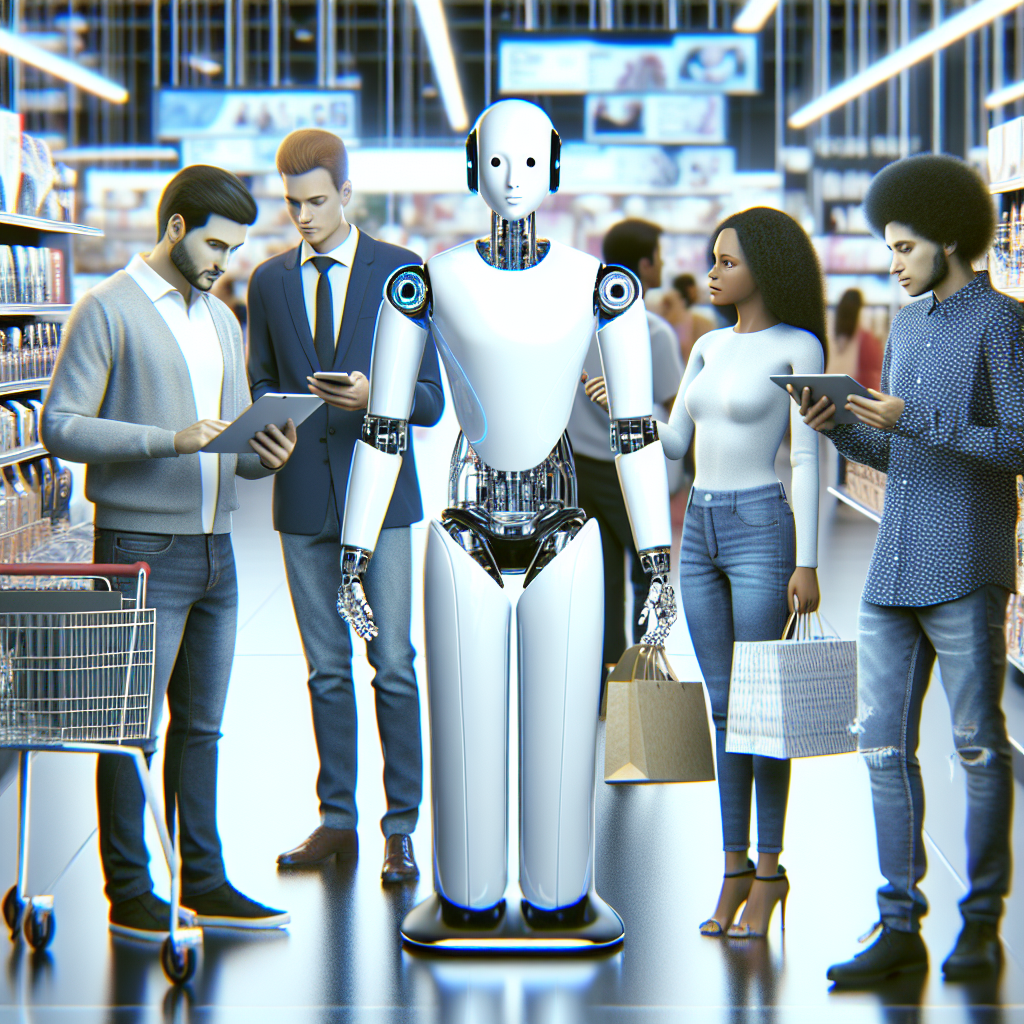Artificial Intelligence (AI) has been making waves in the retail industry in recent years, revolutionizing the way businesses interact with consumers and optimize their operations. While AI has the potential to bring numerous benefits to the retail sector, such as improved customer service, personalized marketing, and enhanced operational efficiency, it also comes with its fair share of risks and challenges. In this article, we will explore the potential risks of AI in retail and its impacts on consumer behavior.
One of the major risks associated with AI in retail is the potential for data breaches and privacy violations. As retailers collect and analyze vast amounts of customer data to power AI algorithms, there is a heightened risk of this data being compromised by cybercriminals. This can result in sensitive customer information, such as credit card details and personal preferences, being exposed and misused. In addition, AI-powered systems may also inadvertently violate consumer privacy by overstepping boundaries and infringing on personal data rights.
Another risk of AI in retail is the potential for algorithmic bias and discrimination. AI algorithms are designed to make decisions based on patterns and data, but they can also inherit biases from the data they are trained on. This can result in discriminatory outcomes, such as targeting certain demographics for higher prices or excluding certain groups from promotions. As a result, consumers may feel unfairly treated and lose trust in the retailer, leading to negative impacts on customer loyalty and brand reputation.
Furthermore, the increasing reliance on AI in retail may also lead to job displacement and economic inequality. As AI-powered systems automate tasks that were previously performed by humans, there is a risk of job loss for retail employees. This can exacerbate existing inequalities in the workforce, as low-skilled workers are more likely to be replaced by AI technologies than higher-skilled workers. Additionally, the adoption of AI in retail may also widen the gap between large retailers with the resources to invest in AI and smaller businesses that cannot afford such technologies, leading to market consolidation and reduced competition.
In terms of consumer behavior, the risks of AI in retail can also manifest in the form of reduced human interaction and personalized experiences. While AI technologies can enhance efficiency and convenience for consumers, they may also erode the personal touch that is essential for building strong customer relationships. As retailers rely more on AI-powered chatbots and recommendation engines, consumers may feel disconnected and alienated from the brand, leading to decreased loyalty and engagement.
Despite these risks, AI also has the potential to mitigate some of the challenges faced by the retail industry. For example, AI-powered analytics can help retailers better understand consumer preferences and behavior, enabling them to tailor their offerings and marketing strategies to meet customer needs. AI can also improve operational efficiency by optimizing inventory management, forecasting demand, and streamlining supply chain processes. By harnessing the power of AI, retailers can unlock new opportunities for growth and innovation while mitigating the risks associated with these technologies.
In conclusion, the risks of AI in retail are real and should not be overlooked. From data breaches and privacy violations to algorithmic bias and job displacement, there are numerous challenges that retailers must navigate as they adopt AI technologies. However, by proactively addressing these risks and implementing ethical AI practices, retailers can harness the full potential of AI to enhance customer experiences and drive business success.
FAQs:
1. What are some examples of AI technologies used in retail?
– Some examples of AI technologies used in retail include chatbots for customer service, recommendation engines for personalized marketing, and predictive analytics for demand forecasting.
2. How can retailers mitigate the risks of AI in retail?
– Retailers can mitigate the risks of AI in retail by implementing strong data security measures, ensuring algorithmic transparency and fairness, and providing training and support for employees affected by automation.
3. What are the benefits of AI in retail?
– The benefits of AI in retail include improved customer service, personalized marketing, enhanced operational efficiency, and better decision-making based on data-driven insights.
4. How can retailers balance the use of AI with human interaction?
– Retailers can balance the use of AI with human interaction by leveraging AI technologies to enhance, rather than replace, human interactions. For example, using AI-powered chatbots to handle routine customer inquiries while reserving more complex issues for human agents.
5. What ethical considerations should retailers keep in mind when using AI in retail?
– Retailers should consider ethical considerations such as data privacy, algorithmic bias, and job displacement when using AI in retail. It is important to prioritize consumer trust and transparency in the use of AI technologies to ensure positive outcomes for both businesses and consumers.

